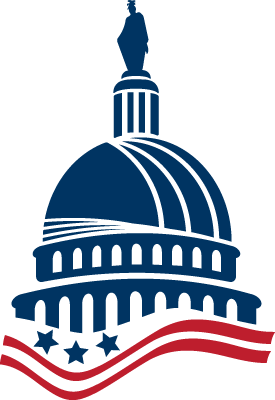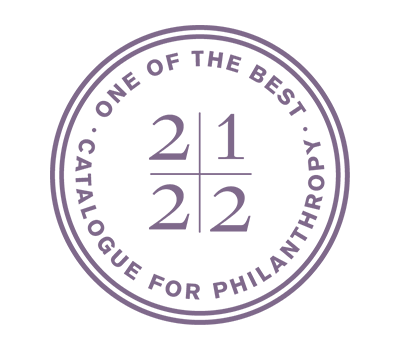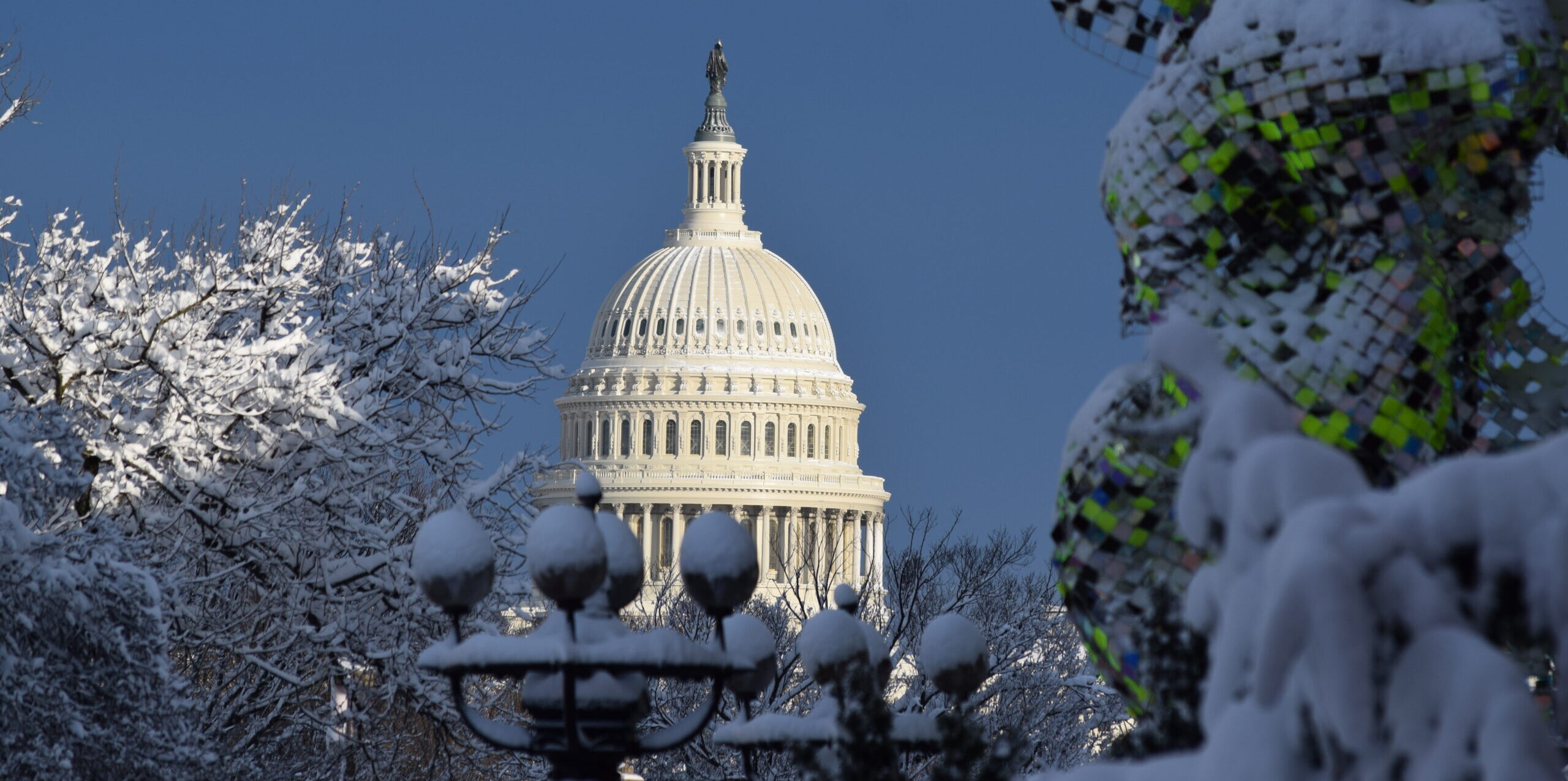December 20, 2022
Victory or Death: How Washington Saved America on Christmas Night
On Christmas night, 1776, George Washington led a harrowing mission across the Delaware to save the American cause for liberty. His soldiers’ password was “Victory or Death.” Our featured guest to share this remarkable story was Dr. David Hackett Fischer, winner of the Pulitzer Prize for his definitive history, Washington’s Crossing.
December 1, 2022
Party Wars: Jefferson vs. Adams, Hamilton vs. Burr, & the Need for the 12th Amendment
After the Election of 1796, President John Adams served in the White House while Vice President Thomas Jefferson retired to Monticello. Why? Then, during the Election of 1800, Congress had to break a tie between Jefferson and his own running-mate, Aaron Burr. Again, why? During our webinar, the U.S. Capitol Historical Society continued our series on the Constitution by exploring the history—and necessity—of the 12th Amendment. Before its ratification, the presidential candidate who finished first, became president, while the candidate who finished second, became vice president. This not only led to divided cabinets, but a divided USA. More importantly, while the founding fathers agreed on independence, they didn’t agree on what independence meant.
November 29, 2022
How Thanksgiving Became a Holiday: From the Wampanoag & Pilgrims to Washington & Lincoln
American lore says that Thanksgiving began in Plymouth Colony under a veil of friendship between the Pilgrims and Wampanoag Indians in 1621. While this event is steeped in our national history—and mythology—what many Americans do not know is that Thanksgiving was not recognized across the USA until 1789 under George Washington. Or that it would take nearly a century until Thanksgiving became an annual holiday during the Civil War. After traveling to visit friends and family this holiday season, we hosted a webinar about the history of Thanksgiving and how it became a national holiday. Sharing this story was historian Diana Muir Appelbaum, the author of Thanksgiving: An American Holiday, An American History.
November 17, 2022
Native Warrior: A Conversation with One of the Last Living Navajo Code Talkers
The U.S. Capitol Historical Society hosted a special webinar featuring hero, and World War II and Korean War veteran, Lance Corporal Thomas Begay, one of three living Navajo Code Talkers. During our event to honor Veterans Day and National Native American Heritage Month, LC Begay—recipient of the Congressional Silver Medal—reflected on his service in the United States Marines during the Battles of Iwo Jima and Chosin Reservoir, the reception that he and his fellow Navajos received from fellow Americans, and why he believed then, just as he does now, “No matter what nationality. No matter what tribe. I think there’s one flag, one nation, one of us all.”
Our event also featured Hopi journalist, Patty Talahongva, who produced the documentary film, The Power of Words: Native Languages as Weapons of War, for the Smithsonian National Museum of the American Indian. She detailed the history of Indian code talkers during the First and Second World Wars, their recruitment, training, and treatment in the U.S. Army, and why the details of their involvement remained hidden for decades.
November 3, 2022
Bridge of Spies: The Capture of Francis Gary Powers & the Current State of U.S.-Russia Relations
In 1960—during the heart of the Cold War—CIA U-2 pilot Francis Gary Powers flew his aircraft on a spy mission “deeper into Russia” than any U.S. pilot had flown before. Over Soviet territory he was shot down, captured, and incarcerated at Lubyanka prison in Moscow. Powers’ son—historian Francis “Gary” Powers, Jr.—joined the U.S. Capitol Historical Society to detail the harrowing story of his father’s imprisonment and interrogation, trial for espionage, and the U.S.-Soviet prisoner exchange depicted in Steven Spielberg’s movie, “Bridge of Spies” — which Gary consulted on.
During our webinar, Gary—founder of The Cold War Museum in Virginia—also discussed the role of President John F. Kennedy in bringing his father home, the U.S. media firestorm, and the Congressional hearings that investigated the circumstances of Powers’ mission and capture. Joining him for this important and timely conversation was Dr. Andrew Hammond, Historian & Curator at the International Spy Museum in Washington, D.C. During our webinar, Dr. Hammond—a Public Policy Fellow at the Woodrow Wilson Center for Scholars—connected our conversation to current U.S.-Russian relations, including the war in Ukraine and President Biden’s negotiations to bring Brittney Griner and other American prisoners in Russia home.
October 25, 2022
Capitol Kids! Dr. Joseph Bruchac on "Rez Dogs"
From America’s foremost indigenous children’s book author comes a middle grade verse novel set during the COVID-19 pandemic about a Wabanaki girl’s quarantine on her grandparents’ reservation and the local dog that becomes her best friend. Malian was visiting her grandparents on the reservation when the COVID-19 pandemic started. Now she’s staying there, away from her parents and her school in Boston. Everyone is worried about the pandemic, but on the reservation, everyone protects each other, from Malian caring for her grandparents to the local dog, Malsum, guarding their house. They always survive together. Malian hears stories from her grandparents about how it has always been this way in their community: Stories about their ancestors, who survived epidemics of European diseases; about her grandfather, who survived a terrible government boarding school; and about Malian’s own mother, who survived and returned to her Native community after social services took her away to live in foster care as a child. With their community and caring for one another, Malian and her family will survive this pandemic, too.
October 20, 2022
States' Rights vs. Federal Power: America's Most Enduring Debate
James Madison wrote in the Federalist Papers that “The powers” granted by the constitution to “the federal government are few and defined,” while those granted to “the State governments are numerous and indefinite.” Yet Article VI of the Constitution also established the supremacy of U.S. laws over those of the states. In this webinar, the U.S. Capitol Historical Society continued our series on the Constitution with a history of our 9th, 10th, and 11th Amendments. Not only do they continue to impact the rights of our citizens and states today—they are at the heart of the United States’ enduring debate over sovereignty. Our featured speaker for this necessary and timely conversation was Michael W. McConnell, J.D., the Director of the Constitutional Law Center at Stanford Law School.
September 28, 2022
Secret Washington DC: A Guide to the Weird, Wonderful, & Obscure
Watch the U.S. Capitol Historical Society’s latest installment of our online Capitol Kids series, which brings children’s and young adult authors to classrooms nationwide. Around the world, Washington, D.C. is known for its powerful government, majestic monuments, and world-renowned museums. Author JoAnn Hill’s “Secret Washington, DC: A Guide to the Weird, Wonderful, and Obscure” reminds us that the fabric of the city isn’t solely embedded in its political parties, lawmaking policies, and tourism. Rather, it’s woven through its rich and complex history, mysterious relics, underground societies, forgotten and abandoned buildings, and controversial scandals.
September 15, 2022
Crime & Punishment: The History of Our 6th, 7th, & 8th Amendments
Two years before the Constitutional Convention, Benjamin Franklin endorsed the maxim: “That it is better a hundred guilty persons should escape, than that one innocent person should suffer.” It is in this spirit that the United States of America protects the rights of the accused, presuming them innocent until proven guilty. But what are the origins of this belief and its importance? And at what point does liberty obstruct law and order? On September 15, the U.S. Capitol Historical Society continued our series on the #constitution with an exploration of the 6th, 7th, and 8th Amendments that guarantee our right to a speedy trial, a jury of our peers, and if convicted, protection from cruel and unusual punishment. Our featured guest for this vital conversation is the Sterling Professor of Law and Political Science at Yale University, Akhil Reed Amar, J.D.
September 1, 2022
Innocent Until Proven Guilty: The History of our 4th & 5th Amendments
Much of what separates the U.S. from other nations are laws meant to protect the rights of the innocent above all else. To safeguard this principle, the First Congress passed the Constitution’s 4th and 5th Amendments that protect Americans from unreasonable searches and seizures and ensure them due process of law, among other vital liberties. On September 1, the U.S. Capitol Historical Society continued our series on the Constitution by discussing the history and societal impact of the 4th and 5th Amendments. Our featured guest for this timeless conversation was the President of the Association of American Law Schools, Professor Erwin Chemerinsky.
July 21, 2022
Our Right to Bear Arms: A History of America's Most Debated Amendment
Few deny the importance of the Second Amendment, either as a right or its impact on society in the U.S.A. But in the wake of two of the deadliest mass shootings in our nation’s history—and another tragedy on July 4th—Americans have been forced to ask themselves: Is the 2nd Amendment absolute? And did the Founding Founders intend it to be?
June 23, 2022
Our Voice as Americans: Freedom of Speech, Petition, & Assembly
On June 23, we continued our series on the U.S. Constitution with the history of freedom of speech, petition, and assembly. During our final event about the First Amendment, we examined how the Founders’ vision for our most important liberties translates to the present day. What does free speech mean in a world of social media and political partisanship? What makes America unique in our right to petition the government against grievances and abuse of power? What historical role has our right to protest played in shaping social discourse, government action, and law?
June 16, 2022
Mary McLeod Bethune Council House: A Headquarters for Change
Park Ranger and historian, John T. Fowler, II, MA, shared the story of the “Mary McLeod Bethune Council House,” a National Historic Site where Bethune achieved her greatest recognition. This Washington, D.C. townhouse was the first national headquarters of the National Council of Negro Women (NCNW) and Bethune’s last home in the nation’s capital. From there, Bethune and the NCNW spearheaded strategies and developed programs that advanced the interests of African American women—and that of the nation.
May 24, 2022
Honoring the 100th Anniversary of the Lincoln Memorial
The month of May marked the 100th Anniversary of the Lincoln Memorial. To honor this momentous occasion, the U.S. Capitol Historical Society hosted an event that explored the legacy of, arguably, our nation’s greatest president. Our panel of experts discussed the surprisingly hostile Congressional debate over the construction of the Lincoln Memorial.
May 12, 2022
American Freedom and the Press
We continued our series on the U.S. Constitution by examining the First Amendment’s guarantee of freedom of the press. Our featured speaker, Floyd Abrams, has been described as “the most significant 1st Amendment lawyer of our age,” after representing the New York Times in the Pentagon Papers case, Judith Miller in the investigation into the CIA leak, and Citizens United in one of the most impactful campaign finance cases ever heard before the Supreme Court.
April 22, 2022
The Environmental Decade: Congress, Nixon, & the Birth of the Environmental Protection Agency
April 22 was the 52nd Anniversary of Earth Day. To celebrate this occasion, we hosted a webinar to discuss the founding of the Environmental Protection Agency and the work of Congress and the Nixon Administration to pass our nation’s first major environmental laws: the National Environmental Policy Act, the Endangered Species Act, and the Clean Air Act of 1970. Our featured speaker was Bob Bostock, a curator for the Nixon Foundation and former head speechwriter for the Administrator of the EPA.
April 14, 2022
Founding Faith: The 1st Amendment & Religious Liberty
During the week of Passover, Easter, and Ramadan, the U.S. Capitol Historical Society continued its series on the U.S. Constitution with a webinar about the history and significance of the First Amendment and religious freedom. Joining us for this important discussion was Steven Waldman, the author of the national bestseller, “Founding Faith: Providence, Politics, and the Birth of Religious Freedom in America.”
April 1, 2022
The History and Meaning of the U.S. Constitution
The U.S. Constitution is the foundation of the American Republic, but do we really understand its meaning? To help answer this question, the USCHS proudly hosted a webinar with Stanford Scholar Jack Rakove, whose book, “Original Meanings: Politics and Ideas in the Making of the Constitution,” won the Pulitzer Prize in history.
March 29, 2022
Capitol Kids: "The Suffragist Playbook"
The latest installment of our Capitol Kids series for children featured, “The Suffragist Playbook,” the winner of the International Literacy Association Young Adult Book Award. Leading our discussion was its authors, Lucinda Robb and Rebecca Roberts, who took a clear-eyed view of the role of key figures such as Susan B. Anthony, Sojourner Truth, and Elizabeth Cady Stanton.
March 8, 2022
Lindy Boggs: The Incredible Life of a Congresswoman, Wife, and Mother
Tuesday, March 8, was International Women’s Day. To celebrate this important occasion, we hosted a webinar to examine the remarkable life of Lindy Boggs, who spent nearly two decades in Congress before serving as U.S. Ambassador to the Holy See. Among her accomplishments as a U.S. Representative, was her effort to ensure that the Equal Credit Opportunity Act protected women and unmarried women from credit discrimination. She also was the proud wife of former House Majority Leader, Hale Boggs, and the mother of acclaimed journalist, Cokie Roberts, distinguished attorney, Tommy Boggs, and former mayor of Princeton, New Jersey, Barbara Boggs Sigmund.
March 1, 2022
Inside the State of the Union: A Conversation with White House Speechwriters
On the day of this year’s State of the Union, we hosted a webinar to interview two former presidential speechwriters about their careers in the White House. This includes their interactions with the President, the drafting of the State of the Union, responses to U.S. crises, experiences working with Congress, & the lessons they’ve learned communicating with the American public. We also discussed what to expect from that evening’s State of the Union & how Pres. Biden might address Russia’s invasion of Ukraine.
February 28, 2022
Capitol Kids: Kitty Felde on “State of the Union”
In the first installment of our new Capitol Kids series, award-winning public radio journalist and children’s author, Kitty Felde, talked about her latest book “State of the Union: A Fina Mendoza Mystery.” In the novel, a mysterious bird poops on the head of the president during the State of the Union address. Can Fina, the 10-year-old daughter of a congressman, find and uncover the secret message brought by this bird?
February 24, 2022
Remembering the Enslaved People who Built the Capitol
10 years ago, during Black History Month, Congress dedicated a marker in the U.S. Capitol Visitor Center to commemorate the role of enslaved labor in building our “Temple of Democracy.” The marker, a block of original Aquia Creek sandstone from the Capitol’s East Portico, was authorized by a Concurrent Resolution of Congress and represents an important step in how the story of the Capitol Building is told.
February 22, 2022
The Wild World of Gilded Age Capitol Tours
Visitors have always been part of the Capitol’s story as the heart of American democracy. “The Wild World of Gilded Age Capitol Tours” examined the surprising history of Capitol tourism from its origins in the 1870s to the early 20th century. Who began some of the most enduring traditions of today’s Capitol visitor experience? How and when did the Capitol become a chic honeymoon destination? What were Congress’ debates over the selection of Rotunda paintings and the price of admission?
February 8, 2022
Harriet Tubman & Leadership: Her Legacy for the 21st Century
March 2022 marks the 200th Anniversary of the birth of Harriet Tubman, known as one of the principal “conductors” of the Underground Railroad. Tubman is also arguably our nation’s most famous abolitionist, was a spy for the Union Army, and an important suffragist in the decades preceding the 19th Amendment.
January 27, 2022
Why? Explaining the Holocaust
The United Nations designated January 27—the anniversary of the liberation of Auschwitz-Birkenau—as International Holocaust Remembrance Day. To recognize this significant and somber occasion, the U.S. Capitol Historical Society hosted a webinar featuring one of the world’s foremost experts on the Holocaust to dispel its many misconceptions, and answer its most vexing question: why?
January 18, 2022
Mary McLeod Bethune and the Era of Franklin Delano Roosevelt
The U.S. Capitol Historical Society was joined by historian Jill Watts who discussed Mary McLeod Bethune’s life and important work during the administration of President Franklin Delano Roosevelt. As a leader of the “Black Cabinet” — a group of prominent African Americans in and around government (and the subject of Dr. Watts’ latest book) — Dr. Bethune was instrumental in advancing the needs and interests of the Black community through the New Deal era and World War II.







